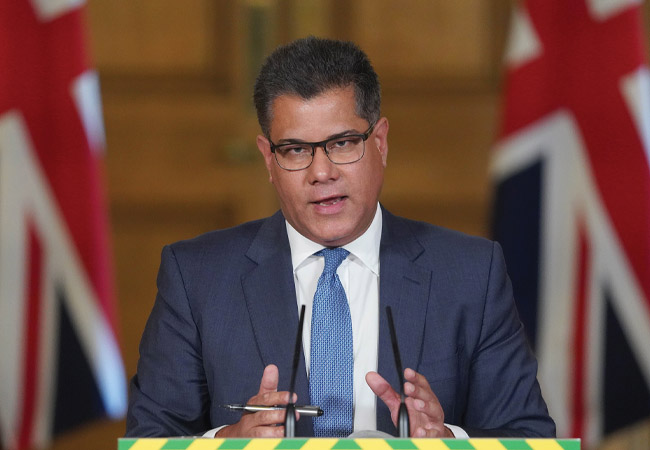
The world is still focused on Covid-19, with new variants emerging and the steadily mounting economic cost grabbing much attention . But the ongoing crisis also provides lessons and insights on the continuing work to address another global issue that threatens huge upheaval: climate change.
The recent appointment of Alok Sharma as full-time president of COP26 ups the tempo and interest in this major global event. With a new US administration seeking re-engagement in the Paris Climate agreement, it is worth recalling a pivotal speech on climate change given by Margaret Thatcher at the UN in 1989. She called for a global commitment to prepare the 1992 Earth Summit – a salutary reminder for us today to prepare for COP26.
Margaret Thatcher was a trained chemist, the only scientist to have led the United Kingdom in the past 150 years. By 1986, she realised that the emerging data on atmospheric carbon dioxide (CO2) levels confirmed the 19th-century hypothesis of Svante Arrhenius, a Swedish chemist, that increasing CO2 levels would lead to a rise in global average surface temperatures. Arrhenius showed that an increase in global
CO2 levels would lead to temperature rises remarkably similar to those observed in the past three decades.
Using evidence emerging from such data series as the atmospheric CO2 measurements at Mauna Loa, in Hawaii, and Arrhenius’s predictions, Thatcher saw very early the challenge of climate change. It is also worth noting that this realisation was quickly understood by one of her then ministers, John Gummer, who now – as Lord Deben – chairs the Climate Change Committee.

Alok Sharma has been appointed full-time president of COP26
What can we learn from the current pandemic response that might help us more effectively to address climate change?
First, the global response to Covid-19 shows that, when the world is faced with a real crisis, it can act. Many governments have reacted with extraordinary measures and uncharacteristic speed. Some changes were so quick and necessarily aggressive that they came with significant economic cost – but it has shown that, where there is agreement that action is needed, it can be delivered fast.
Second, the Covid-19 response had to be informed by science and engineering principles, from medical sciences to fluid dynamics. The prominence of medical and scientific advisers shows the importance of policy being informed by relevant scientific and engineering expertise. This applies just as much to the climate challenge – policy responses need to be informed by scientific principles and use the science and engineering expertise available. It is also worth noting this reliance in relation to the government’s announcement of a new construction products regulator, who will need a very clear understanding of the science and engineering of the products we use in our buildings.
Third , the pandemic has forced change. Running a business for a year without staff attending the office or being in the same room might have seemed insane just 12 months ago. Suggesting cutting business travel by 90% would have been called mad. But we have!
As we have learned the hard way with this pandemic, having a plan and implementing it may cost money, but not having a plan costs a great deal more
We need to look at how we have responded, and learn from it – we should not restart high-carbon behaviour patterns in an unthinking ‘back to normal’ response. We should think hard instead.
Finally, the pandemic is so bad because we ignored the warning signs, over two decades, from SARS, MERS and Ebola, and were woefully unprepared. If we had had a plan to address pandemics, as the World Bank and others – such as Bill Gates – had urged, things would still be bad, but not nearly so destructive.
The warning signs for climate change have been emerging clearly for more than 35 years. The mechanisms may not be simple, and there are complex interactions between atmospheric chemistry, oceanographic trends, meteorology and climate. But as we have learned the very hard way with this pandemic, having a plan and implementing it may cost money, but not having a plan costs a great deal more.
That is why the current consultations on energy, climate change and even overheating in homes are so vital, and we need to invest time, effort and expertise in responding to them (see page 7 of CIBSE Journal, January 2021).
■ Dr Hywel Davies is technical director at CIBSE www.cibse.org
